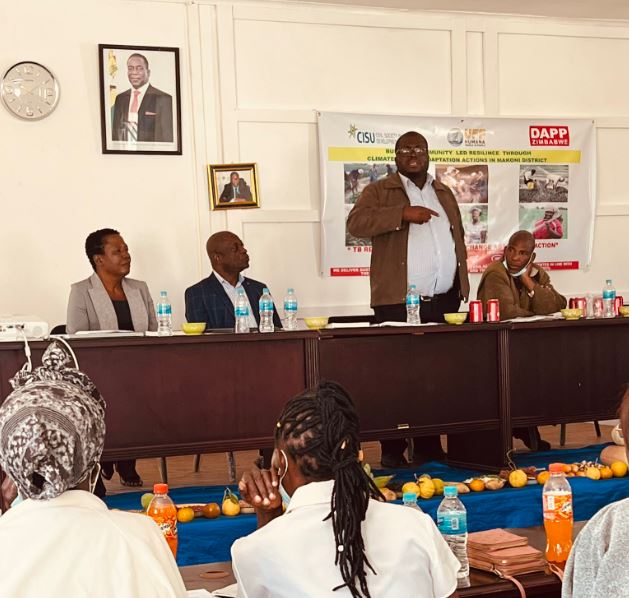DAPP Zimbabwe has launched the Building Community-led Resilience through Climate Change Adaptation Actions in Makoni District, funded by CISU through UFF-Humana. The intervention aims to build resilience among 200 smallholder farmers particularly women and those affected with TB and /or HIV from wards 12 and 16 in Makoni District.
Speaking during the official launch at Makoni Rural District town hall, DAPP Zimbabwe Country Director Luckson Soda said the new actions build on the current TC TB project and will increase household incomes, food and nutrition security.
“This project will promote the adoption of climate-smart agricultural techniques through asset creation of gardens, installation of solar powered borehole and drip irrigation technology and rearing of small livestock production among the 200 smallholder farmers”.
Luckson Soda added that the initiatives align with the National Development Strategy 1, which mainstreams climate change at community level as well as contributes towards SDG 13-on climate action.
Speaking at the same occasion, DAPP Zimbabwe Programmes Director Ruth Makumbe stated that DAPP’s interventions are possible because the organization works with all local leaders and community members.
“We identify ourselves with people, live with the people, together we identify problems and become part of the solution together. We have dedicated and devoted cadres represented here as a People to People organization, ready to work with communities and their leadership, government, and other key stakeholders to transform people’s lives”.
Still, at the same event, guest of honor Makoni District Development Coordinator (DDC) Edwin Mashindi applauded DAPP Zimbabwe for complementing the government’s efforts in attaining Vision 2030 on food and nutrition security and improved household economies.
“I am happy to see a project that we worked together from proposal development to today coming to fruition. These actions anchor on agriculture which is a key driver of Zimbabwe’s Vision 2030 of building resilience to climate shocks by smallholder farmers. As the DDC we support initiatives that align with the National Development Strategy 1(NDS1) which mainstream climate change at community level and these actions are one of them”.
Given the platform to speak during the launch, the beneficiaries welcomed the new actions and promised to work together with DAPP, relevant government departments, public and private sectors for improved livelihoods.


